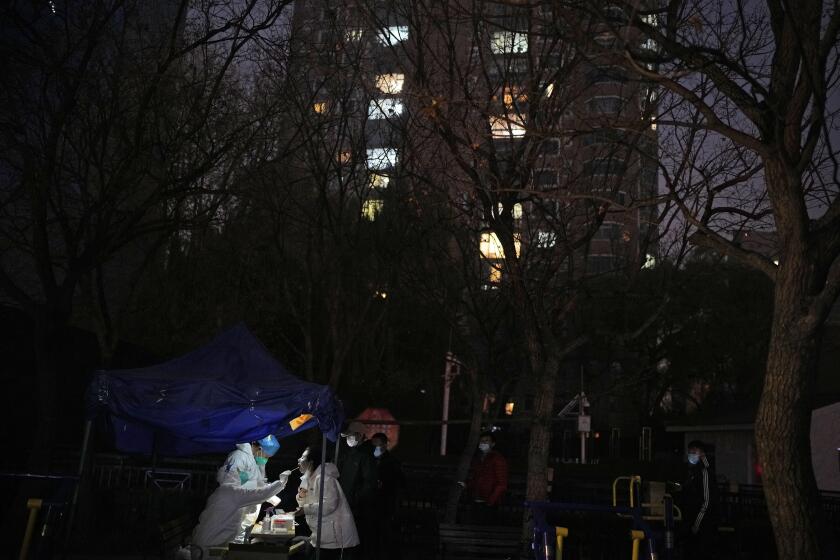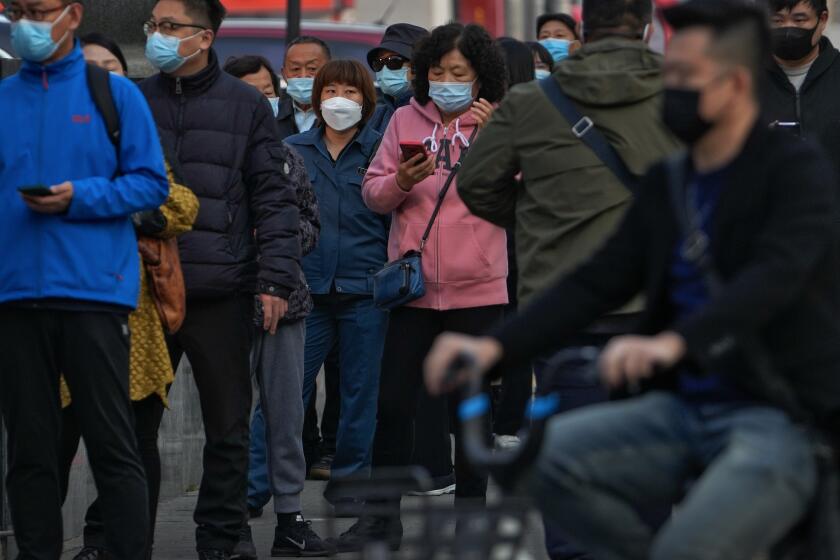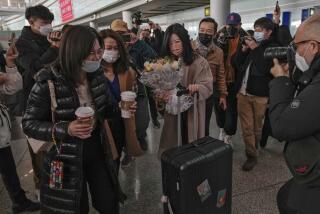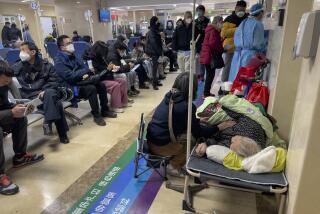Panic-buying hits parts of Beijing as it grapples with a COVID-19 outbreak
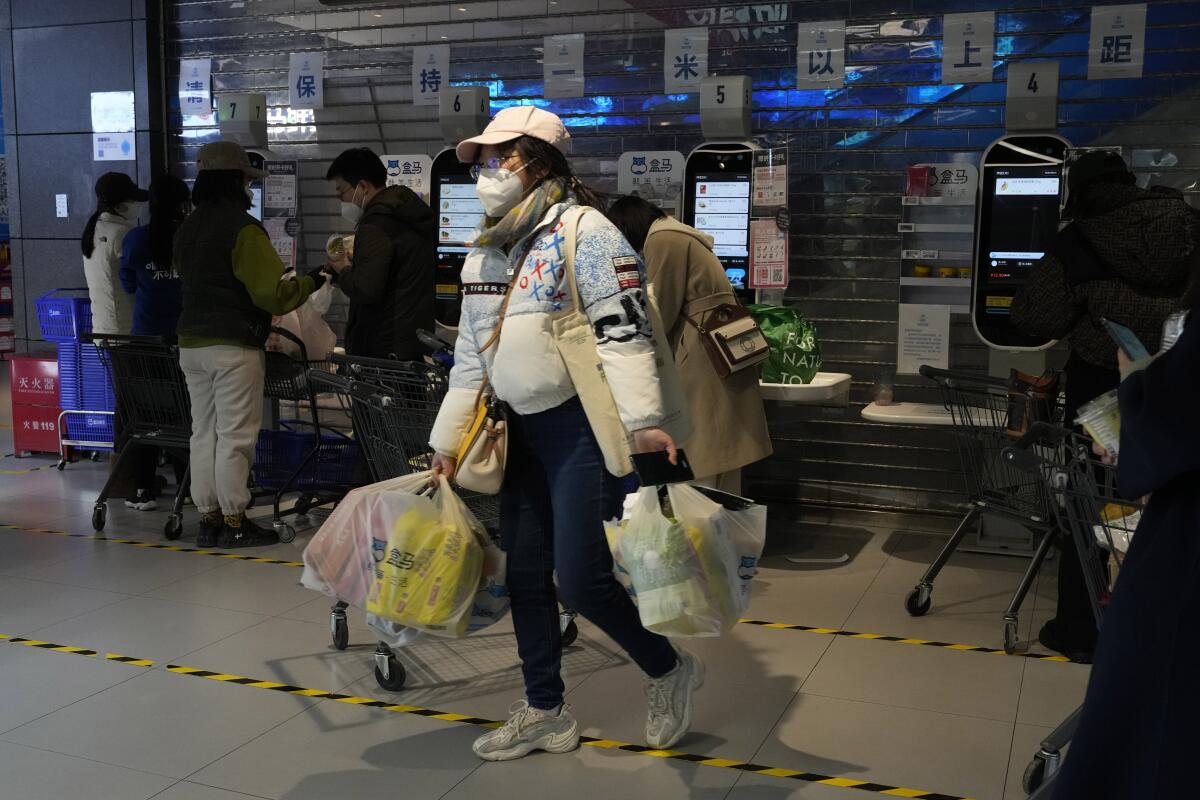
BEIJING — Residents of some parts of China’s capital were emptying supermarket shelves and overwhelming delivery apps Friday as the city government ordered faster construction of quarantine centers and field hospitals amid an expanding COVID-19 outbreak.
Public uncertainty and scattered, unconfirmed reports of lockdowns in some Beijing districts have fueled a surge in demand for food and other supplies, something not seen in the city of
21 million for months.
Unusually large numbers of shoppers in the city’s northern suburbs left shelves bare in markets, but customers were relatively few in the center of the city, where supplies remained abundant.
Daily coronavirus cases across the country are hitting records, with 32,695 reported nationwide Friday. Of those, 1,860 were in Beijing, the majority of them asymptomatic.
Improvised quarantine centers and field hospitals hastily built in gymnasiums, exhibition centers and other large, open indoor spaces have become notorious for overcrowding, poor sanitation, scarce food supplies and lights that stay on 24 hours a day.
Most residents of the city have already been advised not to leave their compounds, some of which are being fenced in. At entrances, workers clad head to toe in white hazmat suits stop unauthorized people and make sure residents show a recent negative coronavirus test result on their cellphone health apps to gain entry.
China has announced its first new death from COVID-19 in nearly half a year, that of an 87-year-old Beijing man, while imposing strict new measures.
Several university campuses have been closed off, and students in lower grades have been shifted to online classes.
Meanwhile, some of Beijing’s grocery delivery services have reached capacity.
An increase in demand combined with a worker shortage left some customers unable to book same-day delivery slots Friday for food and supplies from popular online grocery services such as Alibaba’s Freshippo and Meituan Maicai.
Online, some Chinese users said some delivery personnel were unable to work because their compounds were locked down. The reports could not be verified.
China’s largest city, Shanghai, has started administering an aerosol COVID-19 vaccine that recipients suck in through their mouths, state media said.
At a Friday afternoon news conference, Beijing city government spokesperson Xu Hejian said it was necessary “to strengthen the management and service guarantee” of quarantine centers and field hospitals where people who test positive for the coronavirus or who have been in close contact with an infected person are taken by police.
Officials have in recent days repeatedly insisted that China must stick with its hard-line “zero-COVID” policy, which mandates lockdowns, mass testing and quarantines for anyone suspected of having come into contact with the virus.
The policy is seen as taking a harsh toll on the economy and upending lives in many Chinese cities, leading the World Health Organization and others to call for a change in tack — calls the ruling Communist Party has angrily rejected.
Even harsher measures have been enacted in some parts of China, despite the government urging more targeted measures to reduce the social burden and economic costs.
Local officials are under intense pressure to prevent outbreaks and often gravitate toward the most extreme measures.
Guangzhou suspended access Monday to its Baiyun district of 3.7 million residents, while residents of some areas of Shijiazhuang, a city of 11 million people southwest of Beijing, were told to stay home while mass testing is conducted.
More to Read
Sign up for Essential California
The most important California stories and recommendations in your inbox every morning.
You may occasionally receive promotional content from the Los Angeles Times.
